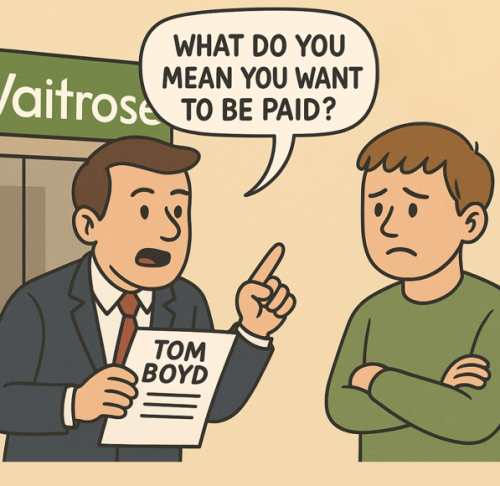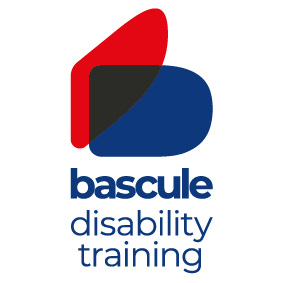Waitrose walks the walk, but fails to talk the talk

You may have noticed, that every so often, a big company makes the headlines for a sizeable disability-related blunder. As a rule, the story breaks, is in the spotlight for a day or two and is then shared across all social media platforms along with comments of outrage and opinion. Then, before you know it, the moment passes and it’s all over. That is until the next one happens.
Well, this week, Waitrose was in the crosshairs, and it was under fire for its treatment of a volunteer with autism, named Tom Boyd. In short, Tom volunteered at a Waitrose in Greater Manchester for over four years, working many shifts, that amounted to over 600 hours over a period of four years. Tom worked away on duties such as stocking shelves and unloading stock, two days a week from 9.30am until 2pm and got on well with other members of staff, who, according to the reports, claimed he worked harder than those who are paid to work in the supermarket.
Now, after this long period of voluntary labour, Tom’s family felt it was time to ask Waitrose if he might be considered for a small number of paid hours, given his hard work, commitment and clear dedication to the role. At this point, Waitrose head office took a long look into the scenario, before halting his position as a volunteer altogether, explaining that they had concern about the volume of unpaid work he had already done.
Now, after two months, much to Tom’s dismay, he has not been able to go back into the role he held at any capacity. In actual fact, according to Tom's Mother, (as quoted in The Grocer), “We were shocked by how cold and dismissive the response was.” She was then told that “He couldn’t be offered the job, because he couldn’t do the full role.” A slight contradiction given he’d done it for four years.
Now, the whole thing doesn’t look great for Waitrose, I’m sure you’ll agree, but what I always find fascinating (as someone who helps organisations to become more inclusive), is when you look under the microscope, Waitrose are very clearly and publicly committed to inclusive recruitment, reasonable adjustments, disability awareness and so on.
Head to their website and they have a shiny, D&I page, pledging their dedication, littered with EDI buzzwords and inclusive imagery. Look further into the John Lewis Partnership (which Waitrose is a part of), and you’ll discover that they are members of the Business Disability Forum, AND they openly boast their Disability Confidence Leader status.
So, what has gone wrong here? How does a company that, at first glance, seems to be leading the way in terms of disability inclusion, makes such a disability faux pas that the story reaches every single national news outlet in the country?
Why haven’t all its commitments to inclusion extended into this particular scenario?
Well, firstly, if Waitrose is recruiting volunteers to work in the store, (especially if they are doing work that is ordinarily paid for), it should also have clear, robust policies and procedures in place that apply to these particular voluntary roles, with consistent pathways and measurements. This means reviewing progress, offering steps in career growth and appraising, assessing and reviewing development at different milestones - like any other staff member would experience. And then, after a certain period, a paid position should be an eventuality, if that person’s role is fulfilled
Volunteering can be used as a very safe, tokenistic way to be disability inclusive if it happens without any intention of formal recruitment. That quite frankly is blatant exploitation. In Tom’s case he wasn’t treated as a worker with rights, he was instead treated as someone ‘having a go’ at having a job, until he asked for it to be a real position, then he was no longer needed. If we were in the US, Waitrose’s actions would have been illegal, because anyone performing work for a commercial, ‘for-profit’ business must be classified as an employee and paid at least the minimum wage and overtime.
Essentially, what is required is a cultural adjustment. Yes, Waitrose has pledged, promised, committed and undoubtedly done a lot more, but incidents like this happen when inclusion is not a part of a company’s cultural DNA. Inclusion should be a part of the mindset of all staff, from the colleagues Tom worked with in the Greater Manchester store, to the staff at Head Office, on the phone to his mum.
If this was the case, then Tom, (and others volunteering for Waitrose), would be recognised as employees, who are on a planned and regulated pathways to potentially becoming permanent paid team staff members. They would no longer be viewed as "charity cases", but instead, they would be seen as volunteers engaged in a structured program with the goal of ultimately joining the team.
In conclusion - If a business benefits from any volunteering, but the volunteer isn’t offered the opportunity to progress and to eventually be paid, inclusion is tokenistic at best and the likelihood of exploitation increases.
It’s important that when news stories like this break, we remember that disability inclusion is a lot more than a badge on your homepage, or a paid membership, or a status you achieve before resting on your laurels.
Inclusion is more than policies. It is a cultural commitment. It’s education. It is your people their perceptions, behaviours, attitudes and actions – and it is continuous investment in them will always bring the biggest change.
[NOTE- Since writing this piece, Waitrose reversed its actions and offered Tom a paid role. A family spokesperson said they were reviewing whether to accept it- as Tom has also been offered a job at rival supermarket Asda.]
CHRIS JAY- MANAGING DIRECTOR - BASCULE DISABILITY TRAINING



